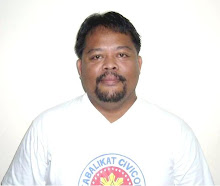Hercule Poirot, Sherlock Holmes and Lt. Colombo are fictional characters, equally fictional is the concept that police detectives solve crimes by applying deductive reasoning to the clues of the case. Certainly crime-scene evidence and eye-witnesses are of great importance in police work but when one examines the reality of criminal investigations it becomes apparent that without informants, "rats", and confessions the vast majority of crimes would go unsolved.
Police routinely offer cash rewards and set up "hotlines" to entice the acquaintances of criminals to come forward. Once police have a suspect in mind they will attempt to interrogate everyone around him, friends, co-workers, family members. With the use of threats, lies and deceit the police are usually successful in extracting information from these sources. Friends and co-workers will be told that they have been implicated in the crime by the suspect and will be charged along with him unless they tell their side of the story. Family member will be told that the suspect has confessed or that evidence proving his guilt exists and that the police want to act in his "best interests" and the testimony of family members would allow him to "get the help he needs". The suspect’s spouse or intimate partner will be told that during the course of their investigation the police have discovered evidence of the suspect’s infidelity in an attempt to break the unique protective feelings developed in an intimate relationship.
Control of information thus becomes the most vital element in the security of our movement. Information is more valuable than any material resource, it can make you rich or it can send you to the gallows. Even the slightest leak can provide investigators a new lead and they are tenacious especially when confronted with a difficult case. We must assure that no piece of information, no matter how seemingly irrelevant, is transformed from our secret into a law-enforcement resource. How can secrets be kept? How can information be controlled? Ben Franklin once said "Three men can keep a secret, if two of them are dead!"… this is a realistic assessment. We all have our own secrets, a dark deed committed alone, a childhood indiscretion, or a act of foolishness in our past which we shall never reveal to the world. These personal secrets are given a level of protection by us that can never be equaled by the swearing and blood-oaths which protect communal secrets. The truth will come out eventually in nearly every case, the best we can do for our communal secrets is to prolong their revelation for as long as possible. Here are some points to consider in the control of information.
- Share no secret which does not have to be shared. In military terminology this is referred to as the "need to know" and is applied so that each individual is given only enough information to perform the mission required.
- When confronted by law enforcement offer absolutely no information. Remember these five words: "I have nothing to say". Know your rights. Make no statement either written or verbal. Demand to see a lawyer immediately. Do not submit to any voluntary search of your person, property, vehicle or residence. Do not waive any of your rights or voluntarily allow them to be violated. The decisions you make when dealing with law enforcement are deadly serious, make no mistakes.
- Do not discuss any aspect of your guerrilla activities on communication systems which are not secure. Such systems include, telephones, cellular phones, faxes and e-mail. Even secure systems, such as digitally encrypted cellular phones and e-mail, should be used with great caution. Who knows what encryption Big Brother really can or can’t break.
- Employ the best encryption possible for computer files (including this one) which deal with racialist ideas, revolutionary struggle, firearms and explosives etc.
- Use "disinformation" in order to confuse and deceive law enforcement.
- Don't discuss your belief in violent action with anyone who is not directly involved in our struggle. Profess adherence to non-violence in public.
Subscribe to:
Post Comments (Atom)

No comments:
Post a Comment